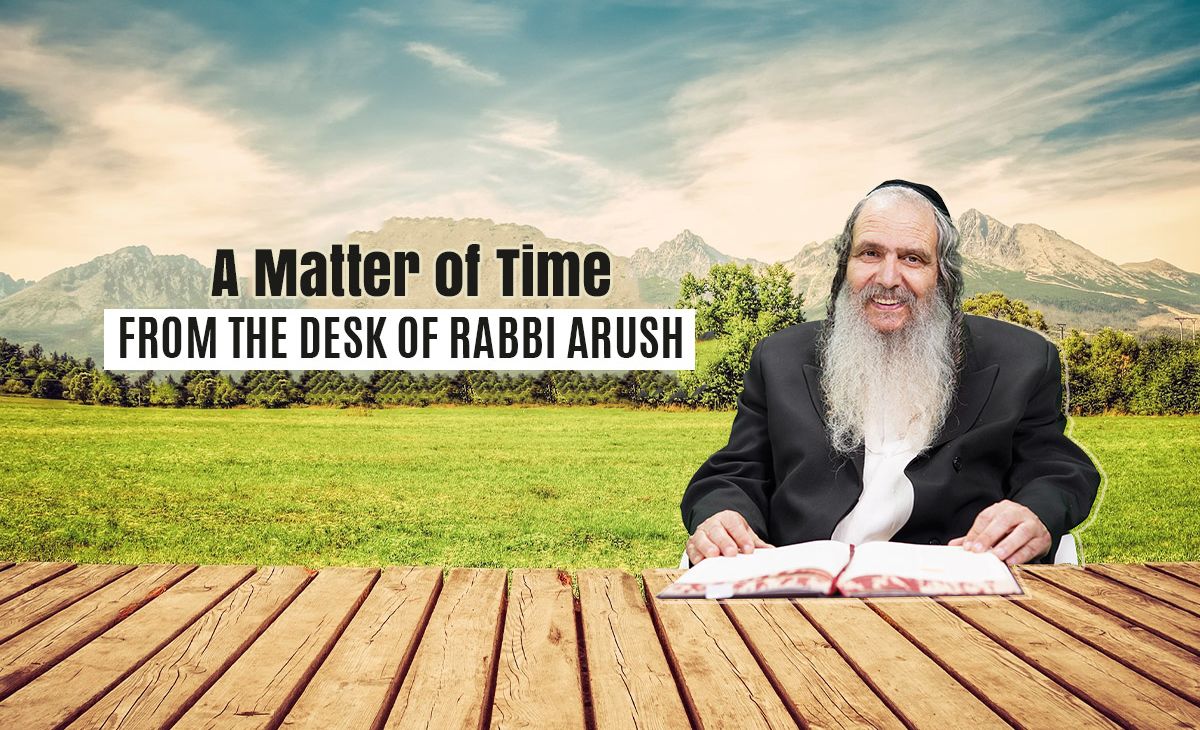
The Assassination Attempt – Chance or Design
The recent assassination attempt of Mr. Trump has prompted most people to blame outside forces such as poor security, radical elements, or bad luck. The Kalever Rebbe explains how even the success or failure of such an attempt is purely Divine Providence.

“I have sinned, for I did not know that you were standing on the road before me…” (Bamidbar 22:34)
The Assassination Attempt
Whenever you hear a story that is clearly hashgachah pratit, Divine Providence, you need to take the time to recognize Hashem’s Hand in every aspect of that story. You should not try to explain the sequence of events as simply chance and happenstance.
An example of clear hashgachah pratit is the story of Shaul (Shmuel I, chapter 18) when he tried to assassinate Dovid HaMelech. At the exact moment that he threw his spear, Dovid HaMelech just turned his head and the spear missed. When Shaul saw this, he didn’t try to explain it as happenstance. Rather, he realized that this was Hashem’s Divine Design.
During moments like that, you can clearly see that Hashem controls every aspect of creation continuously. If a person is not decreed to die or be harmed, then Providence will guide him away from places of danger.
Chazal taught (Chulin 7b) that no one can hurt his finger in this world below if it was not declared Above, as it says (Mishlei 20:24), A man’s steps are from the Lord, for man understands nothing of his way.
The teachings of the Baal Shem Tov elaborate and expound on the topic of Divine Providence (see Igeret HaKodesh in the Tanya Chapter 25): If a person commits a crime that resulted in one’s death, even though he had free choice and he will be punished for his bad choice, that outcome was still decreed by the Heavens. Even if this perpetrator made a different choice, the victim’s death would have come by another way. Without that Heavenly Decree, he certainly would have been saved.
Every Bullet has an Address
There are countless stories throughout the generations of people who escaped death at the very last moment. And, in some circumstances, they were even unaware of the dangers.
An Arab once wanted to assassinate R’ Aharon Tawil HaKohen, zt”l from Aleppo. The assassin calculated that R’ Aharon would be the most vulnerable during Shemonah Esrei. So, he waited. And, when R’ Aharon began to daven (pray) the Shemonah Esrei, he aimed the gun and pulled the trigger. However, at that very moment, R’ Aharon bowed for Modim and the bullet flew millimeters past his head.
The assassin recognized that the rabbi was saved by the Hand of Hashem, and he fled in fear.
In 1943, the Vichy government decided to destroy the Great Synagogue in Lyon, France. A lone soldier was tasked with detonating a bomb during Kabbalat Shabbat to ensure mass casualties. The soldier sneaked in during davening and he was about to begin planting the bomb when the entire congregation turned and faced him. Startled and overwhelmed with fear, the soldier fled. He did not realize that the congregation had turned because they had reached the point in Lecha Dodi where you need to turn and face west.
There are other stories from the Holocaust and other wars when people were saved from bullets that were being fired all around them. As the Chafetz Chaim said, “Every bullet has an address.”
My father zt”l and the family were also saved during the war by clear and apparent hashgachah pratit. We were living in Hungary before the war. However, due to illness, my father moved the family to a town in Romania that had expert doctors who could help with the treatments. When the Nazis entered Hungary, all the residents had been sent to Auschwitz.
In 1940, the Russians informed the thousands of Jewish refugees in Eastern Galicia that they could register as Russian citizens. However, many Jews chose not to, and, as a result, were sent to Siberia. At the time, this seemed like a horrible punishment. But the Germans eventually occupied eastern Galicia and killed most of the Jews who remained there, while all the exiles in Siberia survived, among them my friend the Rebbe from Pchevorsk Shlit”a.
A Jew Never Strays
The tzaddikim have a saying that “a Jew never strays.” Meaning, a Jew is always exactly where he is supposed to be at any given moment. At times, a Jew might start off going to one place and end up somewhere completely different. He might think that he took a wrong turn somewhere along the way. However, that is simply untrue. The Divine Providence brought him somewhere else for a specific purpose in the Divine Design of the world. And this is inevitably in the Jew’s best interest.
Rashi teaches about Hagar (Bereishit 21:14) that “she went and wandered: She reverted to the idols of her father’s house…” The fact that she felt that she was left astray and she didn’t credit her current circumstance to hashgachah pratit made it clear that she lacked the Jewish faith.
One must work on strengthening this Emunah, the faith in hashgachah pratit. R’ Yisroel of Modzitz wrote in Divrei Yisroel (see Parshat Shoftim), “The Jews believe that everything that happens is the result of Divine Providence, even the slightest movement… even the thousands of steps a person takes as he walk. As we say every morning, ‘Blessed are You, Hashem our God, King of the Universe, Who prepares the steps of man.’ When a Jew says this blessing, he needs to have in mind that Hashem controls everything, even the steps we take. When a Jew has this emunah, he can be spared any negative feelings or sadness.”
This explains the words that Bilaam said to the Angel: “I have sinned, for I did not know that you were standing on the road before me… ” He should not have been angry when his donkey strayed from the path. He needed to realize that this was Divine Providence and for his benefit. This saved him from the Angel’s sword. When he realized that he lacked this faith, he knew it was considered a sin. For everyone must believe in hashgachah pratit.
***
The Kalever Rebbe is the seventh Rebbe of the Kaalov Chasidic dynasty, begun by his ancestor who was born to his previously childless parents after receiving a blessing from the Baal Shem Tov zy”a, and later learned under the Maggid of Mezeritch zt”l. The Rebbe has been involved in outreach for more than 30 years and writes weekly emails on understanding current issues through the Torah. Sign up at www.kaalov.org.











Tell us what you think!
Thank you for your comment!
It will be published after approval by the Editor.